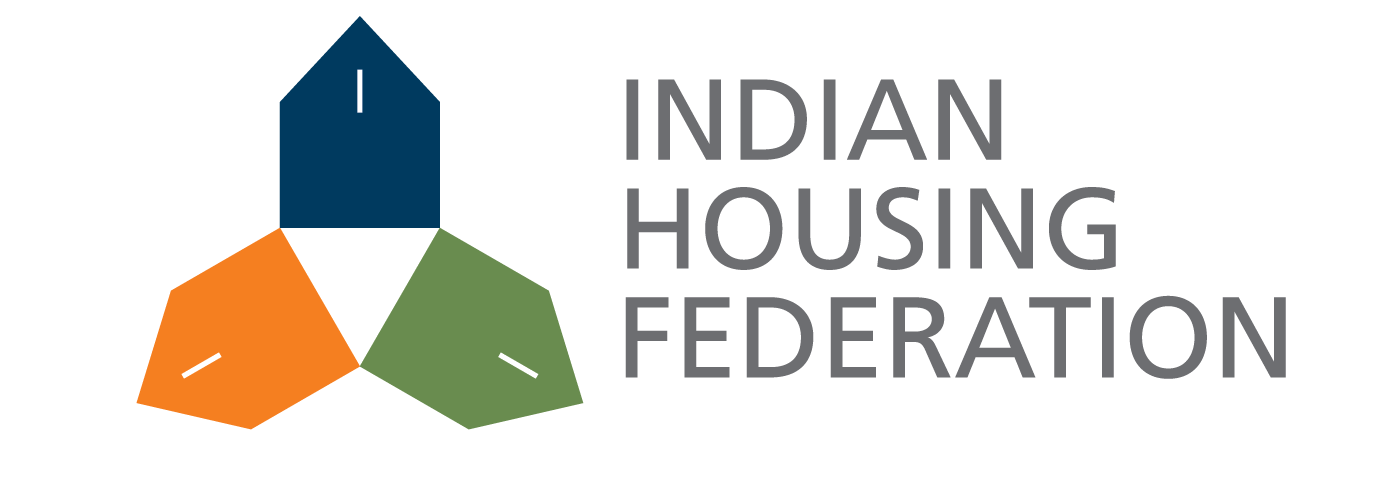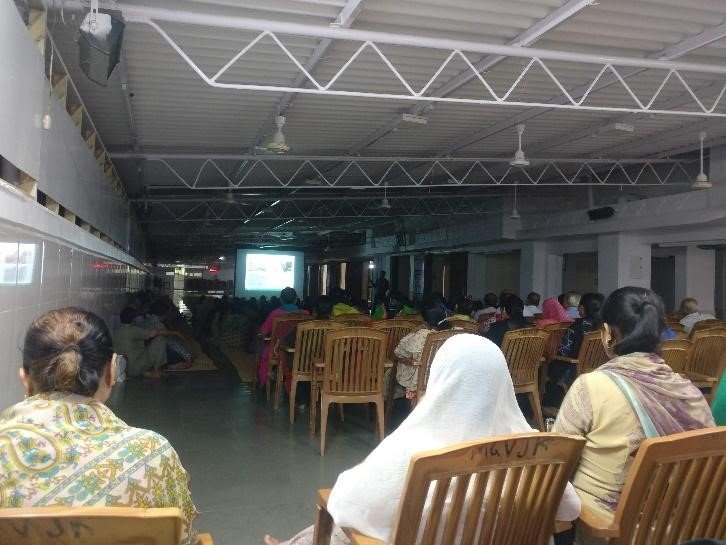Leveraging partnerships for promoting O&M strategies:
The case of a successful collaboration fostered by IHF between Aga Khan Agency for Habitat India (AKAH India) and Youth for Unity and Voluntary Action (YUVA)
April 20, 2022
- By Akshita Saini, Research Intern, IHF
(This blog is based on inputs from interviews with Ms. Sana Dharani [Head of Habitat Improvement, AKAH India] and Ms. Marina Joseph [Associate Director, YUVA])
Introduction
Collaborations enable different organisations to leverage their core competencies and work together to approach a specific or diverse problem that affects the low-income housing sector. Indian Housing Federation (IHF) acknowledges that working in partnership can generate innovative solutions and distinct perspectives. IHF had formed a successful collaboration between two civil society organisations (CSOs) - Aga Khan Agency for Habitat India (AKAH India) and Youth for Unity and Voluntary Action (YUVA) – for their work towards post-occupancy ‘operations and maintenance’ (O&M) in low-income housing projects, a key component of adequate housing.
The collaboration manifested in an O&M awareness training workshop organised for a group of participants from Vashi Naka, a rehabilitation and resettlement (R&R) colony in Mumbai. Vashi Naka is located in M (East) Ward and consists of a cluster of about 90 buildings, housing over 30,000 people affected by multiple infrastructure projects in Mumbai across the span of over ten years, starting from the year 2000. Each building in Vashi Naka consists of seven floors and each tenement has a total carpet area of 225 sq ft. Given the extensive scale of this resettlement colony, many research studies have pointed out that the colony presents inadequate living conditions, including lack of access to basic services. However, certain civil society organisations (CSOs) have been working closely with the communities in the colony to enable them to create positive change and improve their living conditions.
While the collaboration was initially fostered by IHF in May 2019, it was successfully actualised in December 2021 when the impact of Covid-19 relatively subsided. The O&M workshop was organised as a result of partnership between AKAH India and YUVA and both the organisations are now looking into further possibilities of upscaling the collaboration.
Apartment buildings at the Vashi Naka resettlement colony in Mumbai
Photo Courtesy: IHF
Introduction to the organisations
Aga Khan Agency for Habitat India
AKAH India is one of the eight agencies under the Aga Khan Development Network (AKDN) which are active in India. AKDN has a long history of work in India starting from the early 1900s. They have been implementing a range of programmes, in diverse fields of education, health, agriculture and food security, habitat and cultural development. Previously known as Aga Khan Planning and Building Service India, AKAH India has been active since 2000 in the housing sector through effective interventions in designing safe homes and improving safety, services in existing homes. AKAH India also works in environmental and biodiversity enhancement, community-based disaster risk reduction and institutional safety. AKAH India looks at architectural and structural design of buildings to ensure that they are robust, disaster-resilient and meet the requirements of National Building Code of India.
Youth for Unity and Voluntary Action
YUVA was registered in 1984 in Mumbai and has been working at the grassroots level to support and empower marginalised communities. It operates actively in the states of Maharashtra, Madhya Pradesh, Odisha, Assam and New Delhi. YUVA’s three key areas of intervention are: poverty alleviation, environmental sustainability and urban governance and planning.
YUVA also undertakes research that can support the strategic planning to deliver adequate housing. For instance, YUVA in partnership with Indian Housing Federation (IHF) conducted a quantitative study of over 3,000 households in nine notified and five non-notified slums in Nagpur, Maharashtra. The study aimed to understand the housing needs in the city in the context of the provisions stated under the Pradhan Mantri Awas Yojana – Urban (PMAY-U) Mission and its possible convergence with the land titling (malki patta) initiatives of the local government for slum residents. The collaborative research report based on this study titled ‘Housing Needs of the Urban Poor in Nagpur’ also makes recommendations relevant to potential interventions by a range of stakeholders who support the low-income housing sector.
YUVA’s pre-existing engagement in Vashi Naka
YUVA had been working in Vashi Naka since 2016 by looking at the resettlement issues and strengthening people’s livelihoods in the following ways:
❖ YUVA set up a Habitat Facilitation Centre and a Labour Facilitation Centre where access to entitlements, legal identity documents and peoples collectives are facilitated. It imparts information on various laws, policies, social protection schemes and supports people to register for them.
❖ It addresses concerns of access to basic services such as water and sanitation. It undertakes advocacy with Mumbai Metropolitan Region Development Authority (MMRDA) that was responsible for this resettlement project.
YUVA aimed at being a bridge between the government officials and community residents. In the early days of resettlement, MMRDA took initiatives for O&M by emphasising on the roles and responsibilities of co-operative housing societies but the scope of their intervention was limited. In more recent years, there have been unique initiatives by CSOs for maintenance of the buildings.
IHF’s role in fostering collaboration
In May 2019, Ms. Sayali Marawar (currently, Lead — Field Engagements, IHF) had visited the Vashi Naka resettlement colony. IHF interacted with the YUVA team to understand their ongoing work at this location and the key interventions being undertaken for O&M strategy. In another meeting, IHF interacted with AKAH India to understand their nature of engagement in the housing sector. IHF realised that both the organisations have their unique core competencies that could be combined to create a bigger impact. While YUVA was well-engaged with the community at Vashi Naka and could play the role of a social mobiliser, AKAH India could offer support as a technical agency with suggestions for how the buildings could be repaired safely and correct documentation work could be ensured to enable the co-operative housing societies to govern and manage their buildings better.
IHF visited YUVA’s Habitat Facilitation Centre in Vashi Naka [left] and a workshop conducted by AKAH India for co-operative housing societies from Kandivali [right] in May 2019.
Photo Courtesy: IHF
Post this interaction and realisation, IHF connected them with each other for the possibilities of undertaking certain joint initiatives. Subsequently, in the end of 2019, the two organisations took IHF’s lead forward and interacted in detail to share their experiences of working in resettlement colonies. YUVA shared its observations of the Vashi Naka community, building structure and the state of the managing committees of the housing societies. AKAH India shared their offerings under the Habitat Improvement programme and mutually decided the mix of relevant activities in the training that could be useful. The organisations explored the possibilities of working in partnership and this collaboration matured further in February 2020. However, on account of the Covid-19 pandemic and the lockdown measures, in-person programmes could not be organised for several months and neither of the organisations wanted an online programme because of its limited impact. When Covid-19 relatively subsided, AKAH India and YUVA resumed their collaboration in December 2021 by formally signing and pursuing their partnership by organising a training workshop.
Successful training workshop delivered through the collaboration
AKAH India developed certain standard modules based on YUVA’s and Vashi Naka project’s needs and assessment. The modules were based on AKAH India’s experience of undertaking awareness programmes within communities. The participants in the workshop were the active members of the management committees from the cooperative housing societies of Vashi Naka.
AKAH India conducted the training workshop with members of the select co-operative housing societies from Vashi Naka.
Photo Courtesy: AKAH India
YUVA organised this workshop through the Maharashtra PECOnet initiative which is a network of partners, enterprises and citizens who took ownership for facilitating services and solutions during the covid-19 relief response in Mumbai. This workshop on O&M was connected to the objectives of health, safety and disaster management.
AKAH India also offered to build the capacity of YUVA team to help them undertake these trainings themselves. AKAH India could train the architects, engineers and individuals who understand co-operative law in YUVA team such that they could learn from AKAH India’s modules and replicate the same for more communities.
Collaborations and working in partnerships in the housing sector
Each organisation has its core competency and may not possess all-encompassing expertise within its team. Collaborations are crucial to enable a large-scale change and impact on ground for the low-income housing sector. It not only benefits the end user but also the organisations who experiment with new processes and exchange experiences which contributes to their learning and growth. This collaboration enabled AKAH India to reach out to diverse communities beyond their current operational areas and could closely observe how organisations engage with communities for habitat improvement. YUVA could gain technical support to impart training and it acquired skills that can be built further within their team for future. It could create an alternative avenue to scale up and move beyond their current scope of engagement. Collective and collaborative initiatives such as this one fostered by IHF, could create an opportunity to enable adequate housing and awareness on O&M practices through new approaches and resonating motivations.






